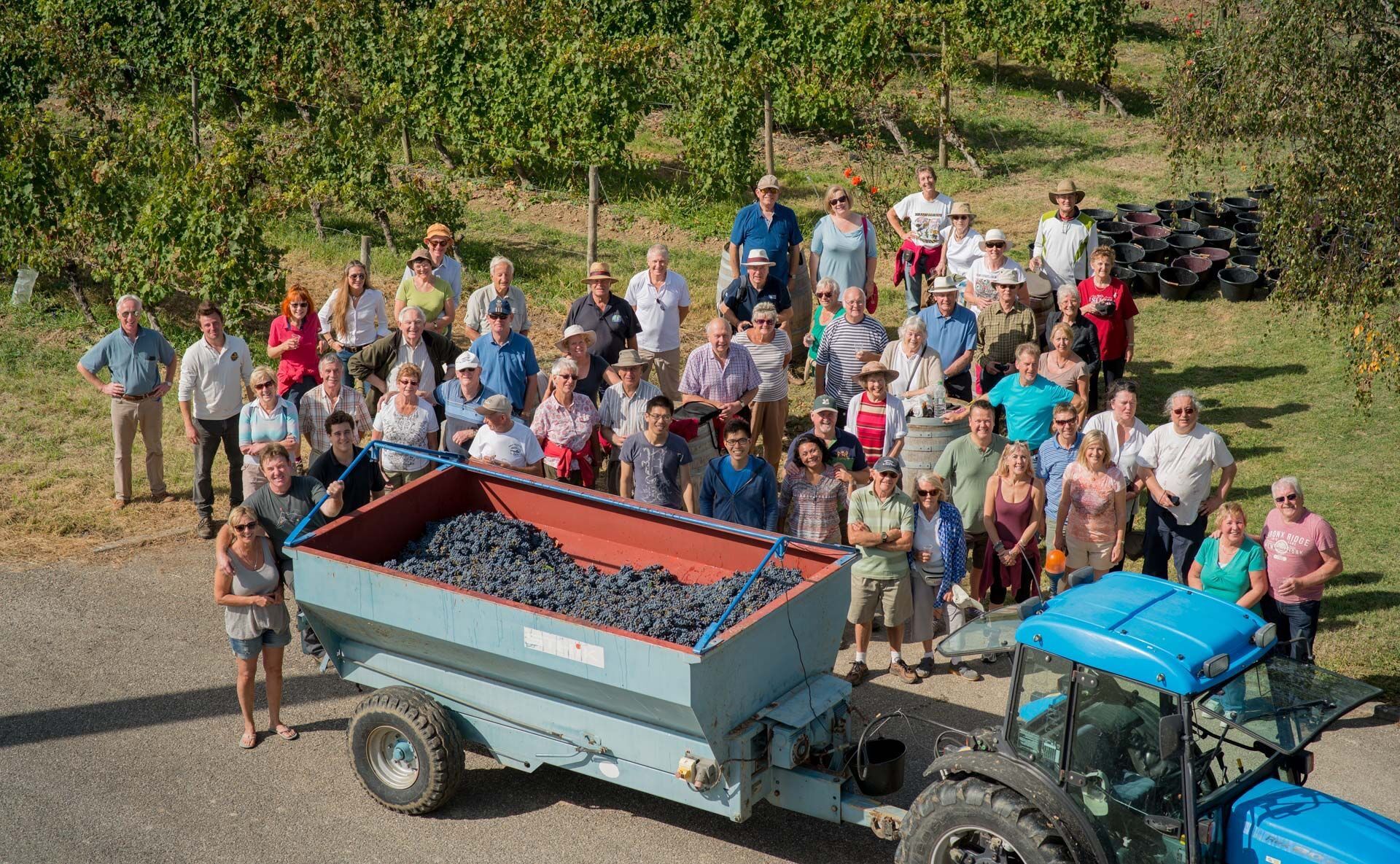After spending most of his working life selling other people’s wines, Phillip Addis is now enjoying his second career making some of his own at the property he c0-owns in south west France.
While many winemakers struggle to attract financial backing for their businesses, one vineyard in south-west France has used crowd-funding to great effect.
Phillip Addis, former Great Western Wines Owner, and his partners Andrew Gordon, finance director Tim Henderson-Ross, winemaking consultant Martin Meinert and entrepreneur Graham Hazell pooled their respective areas of expertise to invest in a run down vineyard, Domaine du Grand Mayne in the Côtes de Duras region back in 2013.
However, after an overview of the set-up they soon realised they needed significant investment to grow the business, and decided to launch a crowdfunding campaign via Seedrs. This successfully raised £450,000 via 600 shareholders and enabled them to breathe new life into the vineyard.
The team have now launched a second round of crowdfunding which went live at the end of May and despite already hitting its £100k target, will remain open to attract further investment as investors look to take advantage of having a stake in a growing winery, and the chance for reduced price stays at the vineyard’s six bedroom holiday home.
Here Addis explains how he has given up a quiet retirement for starting a new life as a vineyard owner”
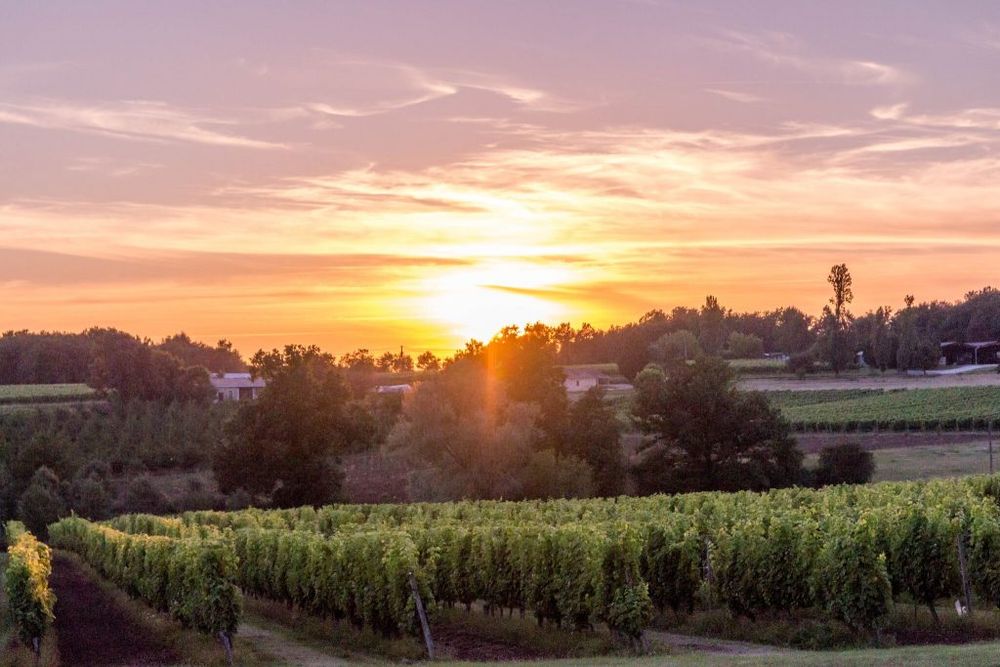
The perfect sunset breaks out over the vineyard
Why did you and your partners decide to buy Domaine du Grand Mayne? Were you looking in the south-west of France in particular?
The vineyard was made successful by the English wine merchant Andrew Gordon who sold it in 2007, and the business was subsequently bought by Graham Hazell after six years of poor management in 2013. It was an impromptu purchase by Graham who was attracted by its former success. He approached me in 2014 and asked if I would help him to revive its fortunes. Despite falling sales there was a great and loyal team, good winemaker, and the vineyards were well looked after and it was incredibly well equipped. I think I finally agreed when sitting on the terrace of the vineyard guest house over a glass of the wine.
How did you fund the initial purchase? Was that via your initial crowdfunding campaign?
Graham had bought it but with it came a big list of its previous consumer customers. Most had rented rows of vines as part of Andrew Gordon’s wine share scheme. Graham could have continued funding, but we decided to go back to those who had rented rows and see if they wanted to buy a real part of the business instead.
What are the benefits and potential risks for investors ploughing their money into a vineyard?
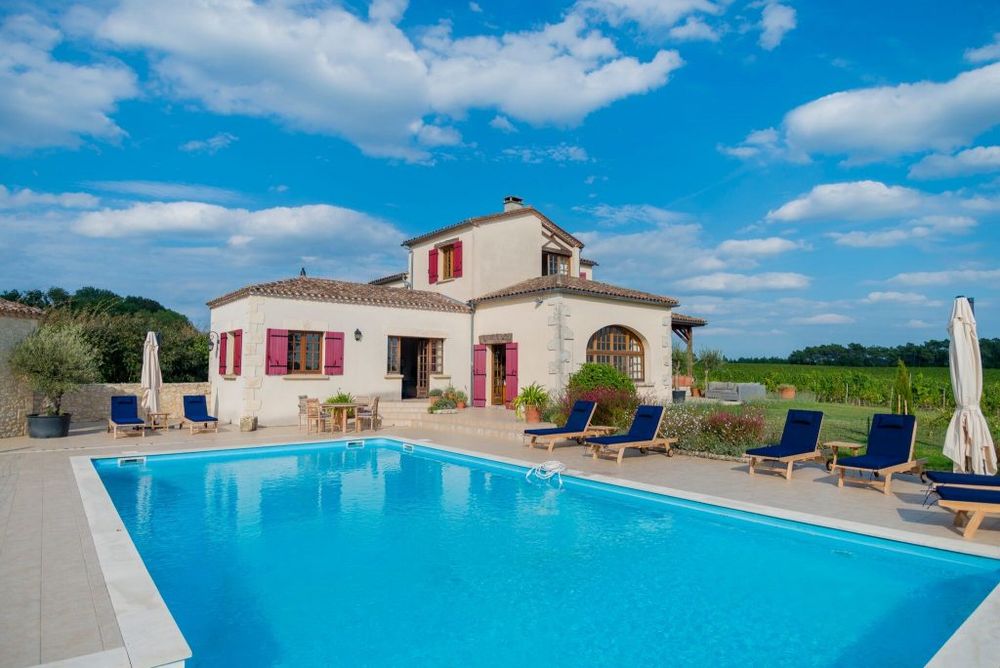
An investment in Grand Mayne also allows you the chance for a discounted stay at its holiday home
Unlike many similar crowd-funding businesses we have a large number of tangible assets in the vines, buildings, machinery and stock. We don’t pay dividends, but we do give big discounts on wine purchases and stays in the guest-house so its great for wine lovers.
What are the advantages of raising funds via crowdfunding, rather than more conventional routes?
The opportunity to grow and engage with your target customers and the money costs less than interest payments.We have a very loyal band of customers who have a vested interest in helping the winery continue to grow by continuing to buy our wines, and we want to open this opportunity up to more people. It’s an easy way for wine lovers to live the dream of owning part of a winery – for minimal financial output.
What did you use that capital for?
Investment was needed in buildings, winemaking equipment and vineyards with a view to making better and better wines and provide a brilliant visitor experience, but we also needed to invest in a UK office and a range of marketing strategies.
How much are you hoping to raise this time and what will those funds be used for?
Our target was £100,000 which we exceeded in a few weeks, so we decided to sell up to £150,000 of shares and keep the campaign running till around mid June which will result in well over 300 new shareholders.
What is the minimum investment, and the average sum invested?
The minimum is £10, but £500 is the amount that qualifies shareholders for the maximum discount level on wines and stays of 25%. Our average investment is around £750.
How much wine do you produce each year?
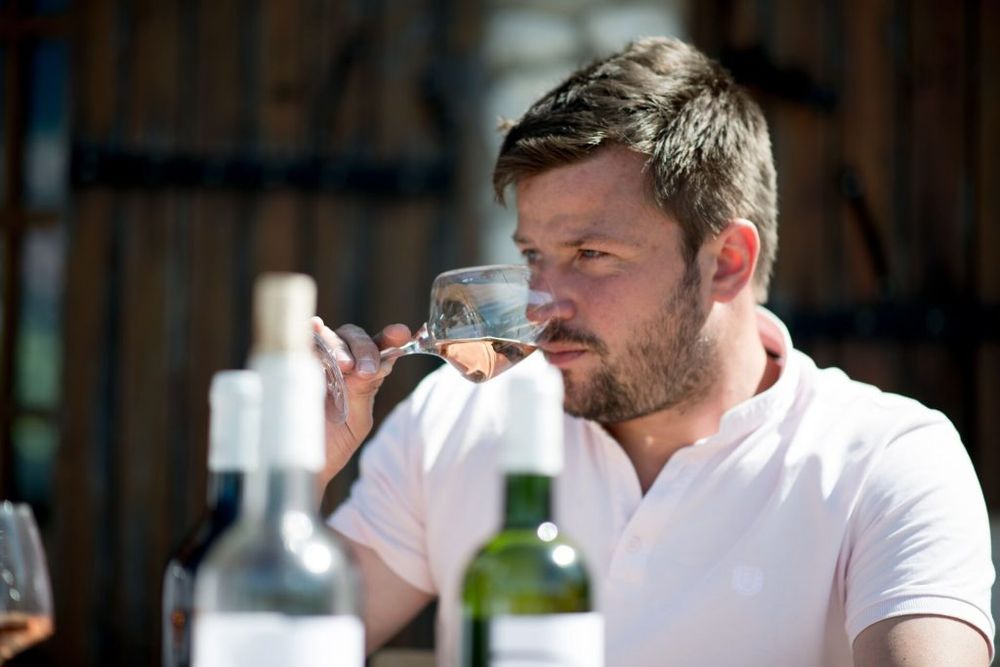
Winemaker Mathieu Crosnier is being rewarded with Gold medals in wine competitions
The vineyard produces an average of 200,000 bottles a year from five main grape varieties. The 34 hectares of vines are planted with 11 hectares dedicated to Sauvignon, one to Semillon, 12 to Merlot, and five each of Cabernet Franc and Cabernet Sauvignon. There is also a small plot of Syrah. From this we make around a third white and two thirds red and Rose, which is just 14,000 bottles this year. Other wines include an unoaked Sauvignon and Merlot Cabernet and the two top wines, a barrel ferment Sauvignon/Semillon which is getting great reviews and oak aged red. These vary in quantity depending on the harvest but they are in the region of 10 to 20,000 bottles each.
How are sales doing?
They have grown by around 30% in 2017, and from €415k euro in 2014 to €776k last year, but there’s lots more to do as we’re still selling some wine in bulk, but things like Gold medals at the Paris fair help and our barrel ferment white has just been made the top white of the region by Revue des Vins de France.
What is your best selling wine, and what price points do they sell at?
In UK the retail price points are around £10 for the unoaked wines and £14- £15 for the Reserve wines.
Any plans to widen the distribution routes for your wines?
Definitely. The wines are currently sold in France and to China, Belgium, Luxembourg, and Sweden and we are in discussions with others in Germany, and Canada. The US is also a focus for us this year.
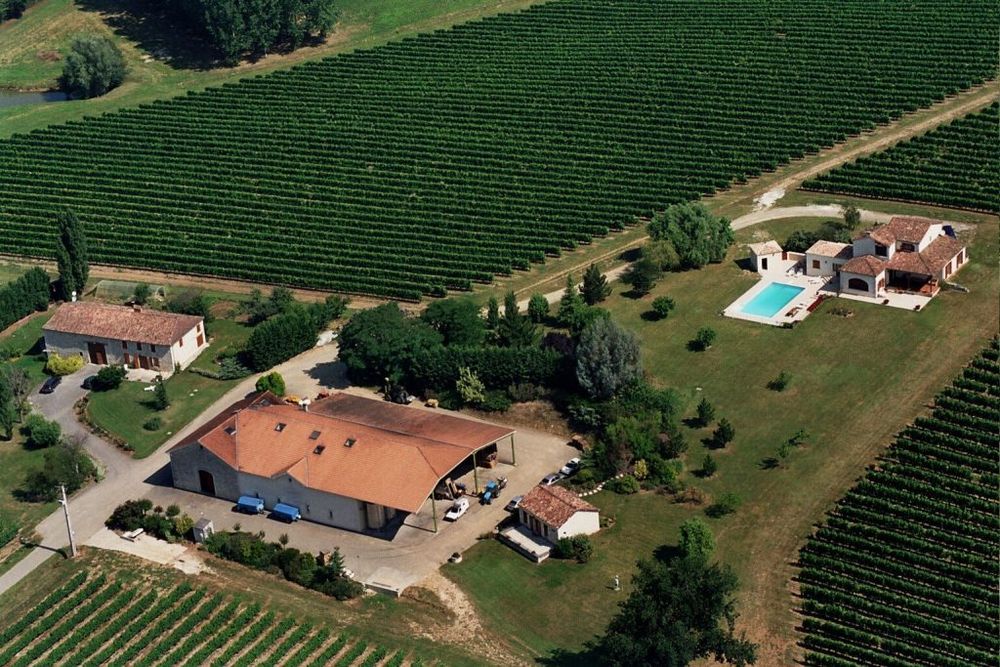
Grand Mayne has been brought back to former glories thanks to the efforts of its crowdfunding campaigns
What was the 2017 vintage like for you?
Some 25% smaller than the average due to the frost, but quality seems good.
How has 2018 growing season been so far?
Wet but without hail so far!
What proportion of your production do you sell to your investors?
In 2017, around €300,000 worth was sold to our UK customers, and that includes shareholders. Some of this was collected from our warehouse base in Calais.
How much of your wine do you export, and which is your biggest market?
By 2020 our goal is to be selling some 40% to our UK customers, 10% in France and the rest to other countries.
Which of your export markets is showing the greatest growth, and do you expect that to continue?
All are growing and as we are new in each market we hope to see more growth
What are your future plans for the vineyard?
To continue to invest in equipment and vineyard with an ambition to be amongst the best of SW France, and make Grand Mayne a destination for wine lovers from all over the world.
